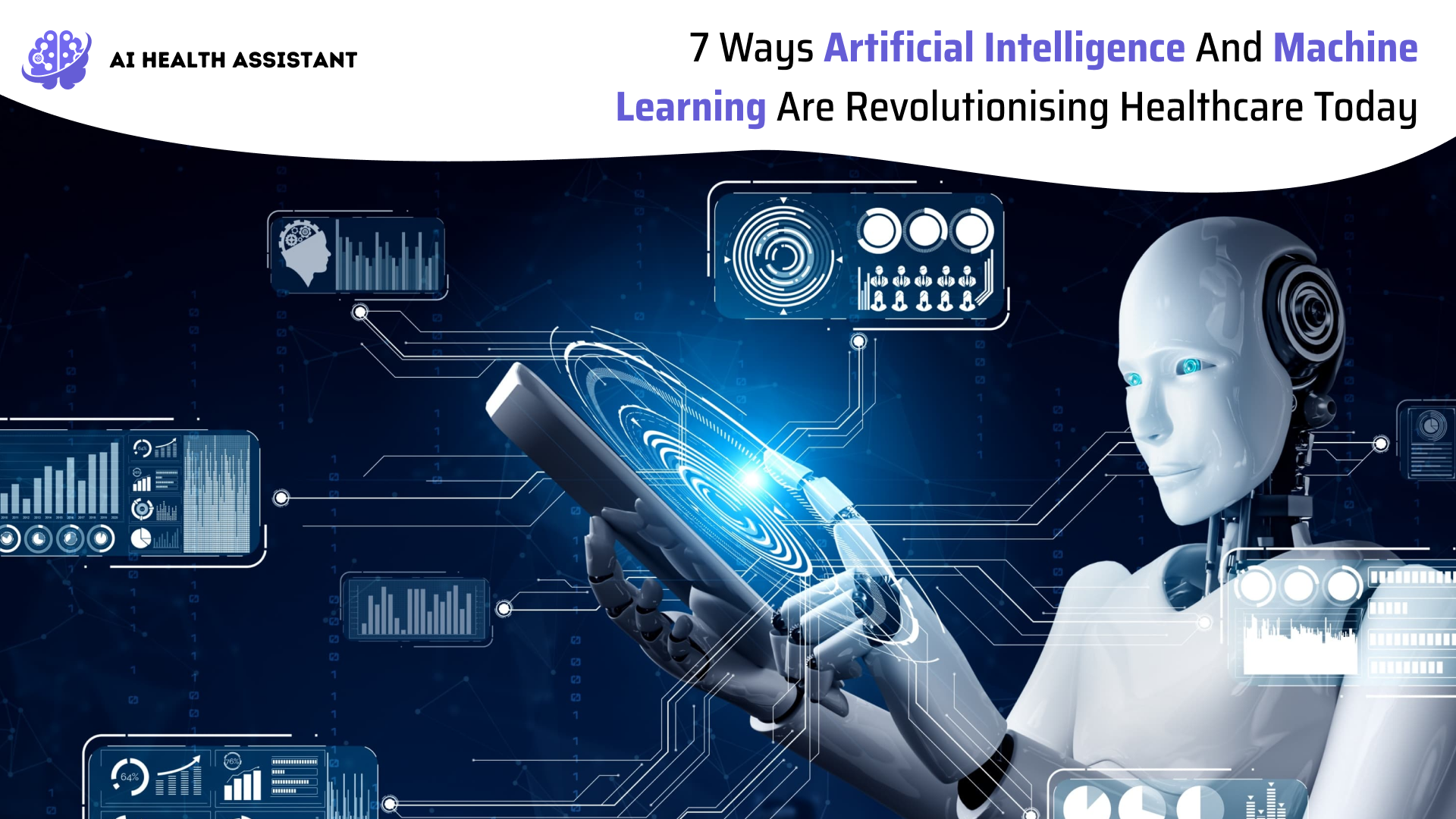
7 Ways Artificial Intelligence And Machine Learning Are Revolutionising Healthcare Today
As more and more technologies are integrated into healthcare, AI and ML have had a profound effect. All aspects of patient care, including management, are being revolutionized by these technological advancements in healthcare.
AI assistants for health to generative AI, the implications in healthcare are wide and profound. This exploration dives into the essence of AI, ML, and their transformative functions in healthcare. The benefits are weighed against the downsides and provide a thorough understanding of their potential and current impact.
What are artificial intelligence and Machine Learning (AI/ML)?
Artificial Intelligence and Machine Learning represent the pinnacle of computational innovation. Machines can exhibit intelligence comparable to human cognition. AI is used as a general term to refer to the development of computers that are capable of performing many tasks normally performed by humans. These include tasks such as reasoning, learning, solving problems, and understanding language. AI healthcare solutions like AI chatbots or virtual medical help are great examples of the technology’s use. They offer personalized patient care and efficiency.
Machine Learning (a subset of AI) focuses on how machines can learn from data and make intelligent decisions. Unlike the traditional programming approach, ML algorithms can improve over time their accuracy without having to be explicitly programmed. In healthcare, this translates into algorithms that predict patient outcomes and personalize treatment plans. They can even discover drugs through the analysis of vast datasets. AI chatbots can offer real-time, conversational support to patients.
How are these innovative technologies transforming the Healthcare Industry today?
AI and ML impact healthcare in a wide range of ways, including patient care and research. Here are seven of the ways these innovations have made waves.
Diagnostic Accuracy: AI algorithms can diagnose diseases with greater accuracy, sometimes surpassing human practitioners. This precision results in earlier interventions and superior patient outcomes.
Personalized Medicine: Machine Learning algorithms analyze data from patients to customize treatments to their genetic profiles. This increases the effectiveness of therapy and reduces side effects.
AI health assistants: AI chatbots can provide real-time support to patients, including answering their ccomplex questions and reminding them about medications at regular intervals.
Predictive Analyses: AI and ML excel at predicting patient admissions and complications. This helps healthcare providers allocate resources and prevent adverse incidents.
Drug Discovery and Development: ML can accelerate drug discovery and development by predicting molecule properties and drug efficacy.
Operational Efficiency: AI solutions optimize hospital operations using smart scheduling, patient flow management, and automated documents, allowing medical staff more time to care for patients.
Improved Patient Experience: Generative AI for Healthcare and AI healthcare bots personalize the experience of patients by providing tailored health advice. They also offer interactive care plans that increase patient satisfaction.
Benefits Of AI & ML In Healthcare
Improved Diagnostic Accuracy
AI algorithms are particularly useful in medical imaging. They can diagnose conditions more accurately than humans, and often with greater precision. The result is earlier and more precise treatment.
Personalized Treatment Plans
By analyzing vast data sets, ML tailors treatments to each patient’s unique genetic makeup. This increases efficacy and minimizes side effects.
24/7 Patient Support
AI healthcare assistants and chatbots provide 24/7 support by answering all the patient questions, reminding patients about their medication, and monitoring their health regularly.
Predictive Analytics
AI and ML help predict the patient admission rate, possible disease outbreaks, and complications and help allocate resources to healthcare more efficiently.
Streamlined Drug Discovery
ML dramatically speeds up the process of drug discovery. By simulating molecule interactions, it reduces time and costs for bringing new treatments onto the market.
Operational Efficiency
AI solutions are a great way to improve hospital operations. These include scheduling, patient flow, and automating repetitive tasks. The staff is freed up for more important duties.
Enhanced Experience for Patients
AI chatbots and Generative AI in healthcare personalize and enhance the patient’s experience by offering personalized health advice and interactive plans of care.
AI & ML and Healthcare: Drawbacks
Data Security Concerns
Privacy concerns are significant when relying on digital patient records. Breach risks and unauthorized access are real.
Issues of Bias & Ethics
AI systems can make decisions that could be viewed as unethical, especially if their methods aren’t transparent. AI algorithms also can reinforce biases in data used to train them.
High Costs of Implementation
The costs associated with integrating AI/ML technologies, particularly for smaller healthcare organizations, can be prohibitive. They could also increase the quality of healthcare services.
Overreliance of Technology
There is the risk of becoming over-reliant on AI/ML. This can lead to a degeneration in skills amongst healthcare professionals and an increase in trust for automated systems.
Integration and Regulation Challenges
It is not easy to navigate the regulatory framework for AI applications. Integrating these innovative technologies within the existing healthcare systems poses considerable challenges.
Bottomline
AI and ML technologies revolutionize healthcare in an unquestionable way. They provide exceptional opportunities to improve care for patients, streamline operations, and conduct advance research. The benefits are far greater than the challenges. Healthcare will be more personalized, accessible, and efficient. As we continue to navigate this exciting frontier, platforms like AI Health Assistant are at the forefront, showcasing the transformative power of AI and ML in making healthcare more responsive to our needs and aspirations. AI and ML used in healthcare with careful consideration of ethics, privacy, accessibility, and other concerns can help create a better, more informed society.